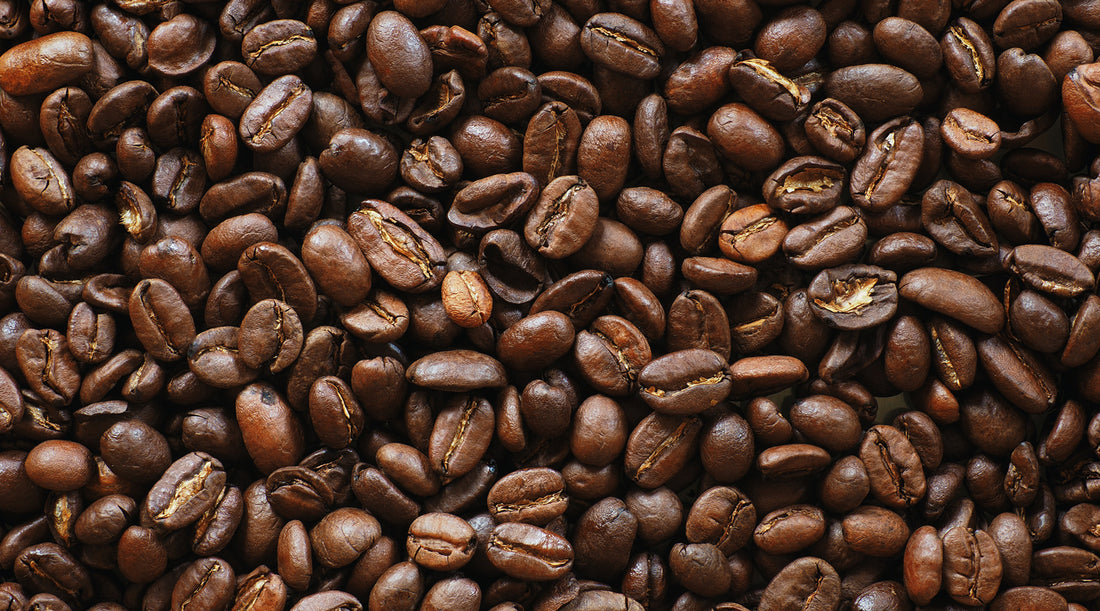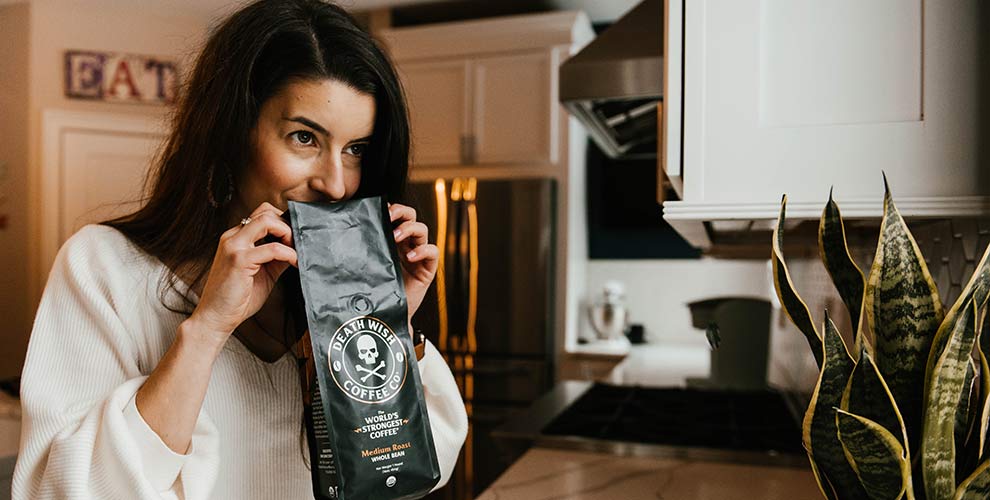
Does Coffee Go Bad?
Coffee TalkTips To Keep Your Coffee Fresh to Death
A double-chocolate donut? Nah. A hot, warm shower? Nope. Sleeping in an extra hour on hump day? Not even close.
Zero things can beat getting the day started with a piping-hot, fresh cup of your favorite brew. There’s no denying it’s the perfect kick-start and best part of the day for many people. A mug of aromatic, flavorful coffee, brewed with freshly roasted beans tastes great—at the same time giving you a surge of energy and a load of health benefits.
But if you’re a true coffee lover, nothing ruins the morning quicker than coffee that sucks. Quality, freshness and taste are key to making that perfect cup. When you’re feeling underwhelmed with your brew, has it ever made you wonder, Can coffee go bad?
The answer might just surprise you. So to make sure you’re drinking the best-tasting and freshest brew around—or even planning to use coffee in your recipes, we’ve compiled a helpful coffee guide on how long to keep coffee, signs of when to toss it, how to store it and more.
Can Coffee Go Bad?
Coffee doesn't necessarily go bad, and a “bad” cup of coffee won’t make you sick. Like most dry, packaged foods and goods, there is no firm expiration date to keep in mind. That’s because coffee doesn’t go bad in the same way that some foods do. It won’t develop sprouts like old potatoes or start to grow mold like forgotten cheese—unless you get those grounds wet or let a pot of coffee sit around too long.
It is, however, recommended to drink coffee within the first two weeks of purchase. Luckily, most coffee drinkers report drinking a pound of coffee in less than that amount of time, anyway. After that, coffee begins to stale. Of course, there is a big difference between coffee going bad vs. coffee getting stale. It really all depends on the roast variety and how the coffee is stored.

Do Coffee Beans Go Bad?
Nothing is more important than beginning with fresh beans. It’s no secret that freshly ground coffee is truly the best coffee. That’s why millions of people agree and buy whole beans to grind themselves. Whole bean coffee lasts the longest of all, too. Be sure to buy coffee beans with a recent roast date on the package and check the storage guidelines to maximize shelf life. Even though beans won’t go bad, on average, coffee beans are still best consumed within three or four weeks of purchase—if you don’t use an air-tight container for storage. Always keep the beans whole until you’re ready to brew, and when you grind beans, grind just what you’ll use for brewing. That means coffee beans will give you the ultimate taste and freshness, and they can stay on the shelf for quite a while if you store them in the right conditions.

When to Discard Coffee Beans?
- If coffee beans (or grounds) get wet, they can’t be reused and need to be recycled.
- If coffee beans just don’t smell right with a bit of a moldy or rotten scent.
- If coffee beans create a dull aroma and/or make a tasteless cup. The smell and taste of coffee are interlinked, so in this case, they passed their prime.
- If coffee beans look bad.
- If there are pantry bugs in the container or bag—eww!
- If you just don’t feel comfortable with the expiration date.
Storing Coffee Beans
- Find a cool and dry and dark place. A pantry or cupboard in the kitchen works, as long as it’s not anywhere near a source of heat.
- Place beans in a container or bag that’s airtight to keep out moisture, air and oxygen.
- Look for beans that come in a resealable bag. Although it’s not a long-term option compared to a sealed container, it will add some shelf life to the beans.
Freezing (or Refrigerating) Coffee Beans
- Go for it, but just know that freezing coffee beans just isn’t much of a game changer.
- There won’t be much of a difference in quality for the long-term, and for sure—they will never smell or taste the same. Since freshness is key to good, quality coffee, that means it’s really best not do it.
- Don’t waste your time putting your stale coffee beans in the freezer. They’ll still be stale when you grind, brew and taste them.
- If you are more worried about extending your beans’ expiration date vs. the super-fresh flavor, then use small, airtight, sealable freezer bags.
- Refrigerated beans (and grounds) actually age faster, losing their freshness and taste—so just don’t do it!
- Coffee beans will absorb other aromas quite easily too, so if you have other smells dwelling in the freezer (or fridge), the coffee will absorb it—likely creating a pretty funky taste.
Disclaimer: If you are gifted pounds and pounds of coffee and you have no choice but to freeze the beans, then keep them in the original, unopened vacuum-sealed package in an airtight container. Thaw only what you are ready to use.
Does Ground Coffee Go Bad?
It’s best to use the ground beans within two weeks of opening. Realistically though, if you’re worried about extending the expiration date whether it’s opened or not opened, you can expect quality for several months past the printed date if you keep the ground coffee in a pantry at room temp. If you freeze it, it can last 1-2 years. Bottom line is that ground coffee will stay safe enough to drink pretty much indefinitely, barring any mold in the bag or a funky smell.
But let’s be honest, the coffee-drinking experience is more about the taste than anything else. If you don’t like how it tastes, then you might as well dump it. There’s just no point.

When to Discard Ground Coffee?
- If you see mold or wet lumps in the bag or container.
- If you find pantry insects in the grounds.
- If the smell is just not right.
- If the coffee you make just doesn’t have that same quality you expect.
Reaper’s Pro Tip: Don’t just chuck the old, stale grounds. You can always use coffee grounds that have lost quality (not safety) in many sustainable ways.
Storing Ground Coffee
- Put the ground coffee in a cool, dry place (in the original packaging is best), but using an airtight, opaque, resealable container in the pantry or kitchen works, too. Again, avoid the fridge and freezer. It just doesn’t work.
- Never use a wet spoon to scoop the coffee—talk about a recipe for disaster and one that could lead to moldy lumps.
Freezing Ground Coffee
- You can try freezing the grounds, but you won’t notice a huge improvement.
- Make sure you put the grounds in a tightly sealed container because there’s still a good chance that the porous coffee grounds may take on some aromas that are hanging out in the freezer.
- Don’t try to defrost coffee grounds—use the grounds straight from the freezer.
Does Instant Coffee Go Bad?
Instant is kind of like pre-brewed coffee that’s been dehydrated, and that’s why many people choose it. Instant varieties have a longer shelf life and won't go out of date as quickly as roasted coffee. Instant coffee can keep its quality for months past the expiration date and stays safe for a long time if you keep it from moisture. If unopened, some claim it can last for 2-20 years in the pantry, depending on the packaging. Most packets have an aluminum layer that keeps out moisture and heat, essentially blocking mold spores from invading and keeping it safe on the shelf. The shelf life of opened instant coffee in the pantry and freezer can be the same with unopened, depending on the packaging. Tightly re-sealed ziplock or rolled-up-and-clipped foil packs can keep freshness intact for a long time.

When to Discard Instant Coffee
- If you see mold or wet clumps in the container.
- If there are pantry bugs in the package.
- If the granules stink.
- If the quality is just not good enough. Toss it!
Storing Instant Coffee
- Store instant coffee in a cool, dry place and seal it tightly. It will keep indefinitely.
- If the package isn’t resealable like most, then put the coffee in an airtight container.
Freezing Instant Coffee
- In theory, instant coffee (freeze dried) can last as long as 2 to 20 years.
- In the freezer, you can keep it forever—quite literally.
Does Freshly Brewed Coffee Go Bad?
The best way to enjoy a cup of coffee (whole bean, ground or instant) and get the highest quality—is to drink it right after you brew it within 1-2 hours! Any time after that the coffee loses freshness and flavor, which is really the whole reason for brewing it in the first place. But if you’re one that would rather take it slow and savor the moment, then you should for sure drink your cup of joe the same day—within 12 hours—if it stays at room temperature. It will still be safe to drink, as long as it’s just black coffee (with maybe with a little sugar added, too). Remember that adding anything else to your coffee—like milk or a creamer—means the coffee will go bad at a faster rate. If you’re like your mother, you can always throw it in the microwave to take it to near boiling just to be safe. But then the taste is totally in question.

If you found yesterday’s coffee still on your desk this morning, dump it—don’t even think about it. Another option is to store it in the fridge for 3-4 days and eventually drink it like a cold brew.
In short, coffee doesn't go bad necessarily, and you can drink it safely for a long time—but try and drink it within a few weeks for best results. At the end of the day (or in the wee hours of the morning), it’s really a matter of taste. It’s a question of whether you think the coffee is good enough to drink. If it’s old and months expired and you’re still loving on it, then go for it. But if it tastes stale to you, toss it—no matter what the date says.
Reaper’s Pro Tip: It’s wise to buy only as much coffee as you can drink within a few weeks. Sign up for a coffee subscription so a world of fresh coffee will arrive at your doorstep exactly when you need it.
[Featured Image Credit: Łukasz Rawa via Unsplash]
RELATED: How to Brew Coffee With a Chemex
